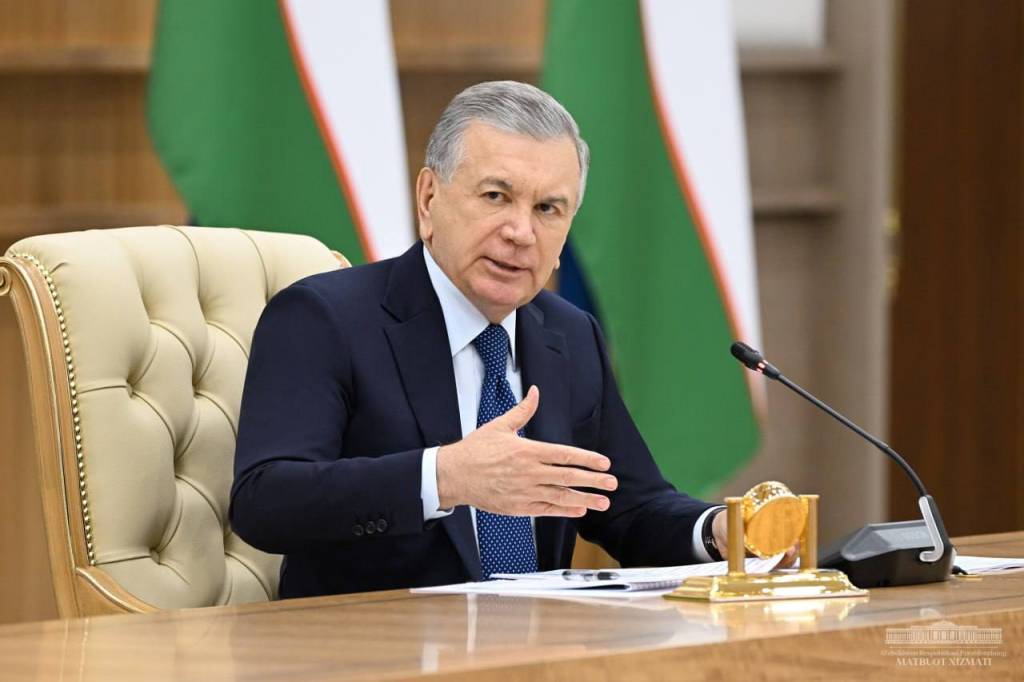
On September 23, President Shavkat Mirziyoyev chaired a meeting to discuss measures to develop the construction and building materials industries.
Construction gives a powerful impetus to the development of all sectors of the economy. Each project increases the demand for building materials, equipment, workers, and specialists. New jobs, infrastructure, and services appear around new complexes.
Over the past seven years, $9 billion has been invested in the building materials sector, about 5,000 new enterprises have been launched, and 94,000 permanent jobs have been created. Production has doubled, and the number of enterprises with an annual turnover of over 100 billion UZS has exceeded 150.
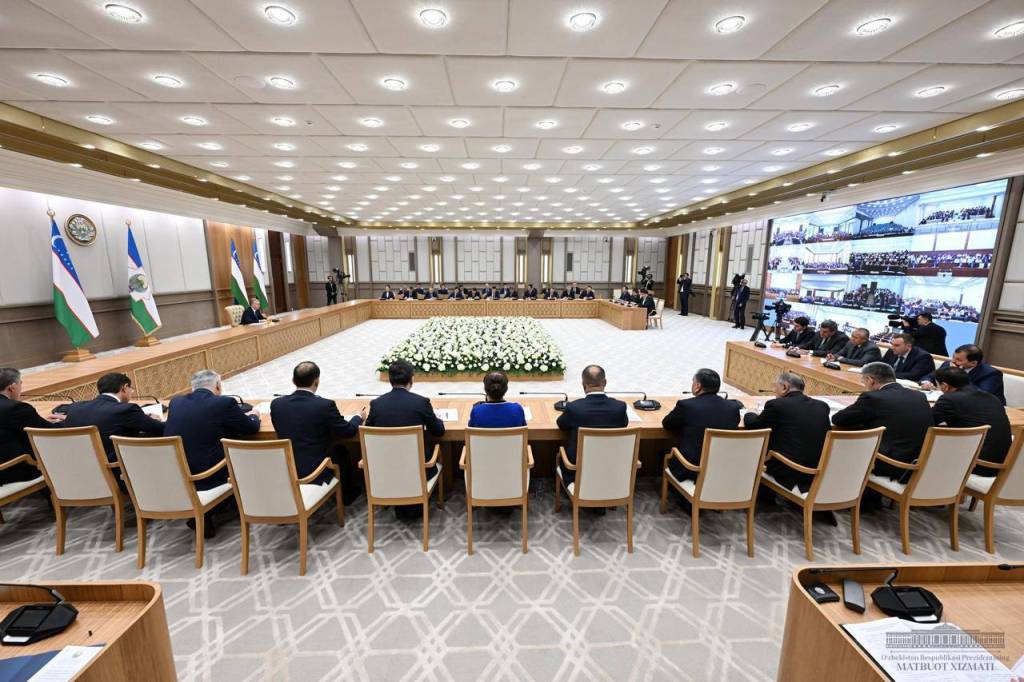
Over the past five years, the volume of construction has doubled. Due to the development of new products worth $650 million, the share of imports in construction has decreased from 31 to 25 percent.
The building materials export market has expanded to 58 countries. More than 20 warehouses and more than 50 stores have been opened abroad. This year, the export volume is planned to increase to $1 billion.
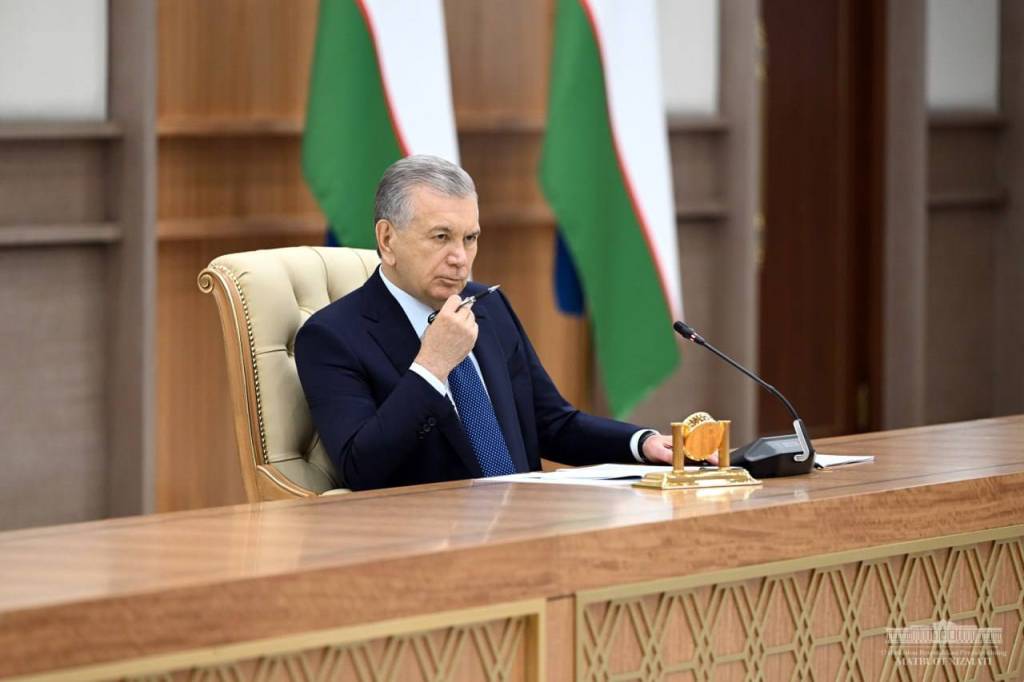
At the same time, the sector has problems, and tremendous potential remains unrealized. At the meeting, the Head of state analyzed the possibilities and announced new initiatives and tasks.
Today, there are seven basalt enterprises in Uzbekistan with a capacity of 140 thousand tons. Because this product is widely used in construction, energy consumption in new residential and social buildings has decreased by 20 percent.
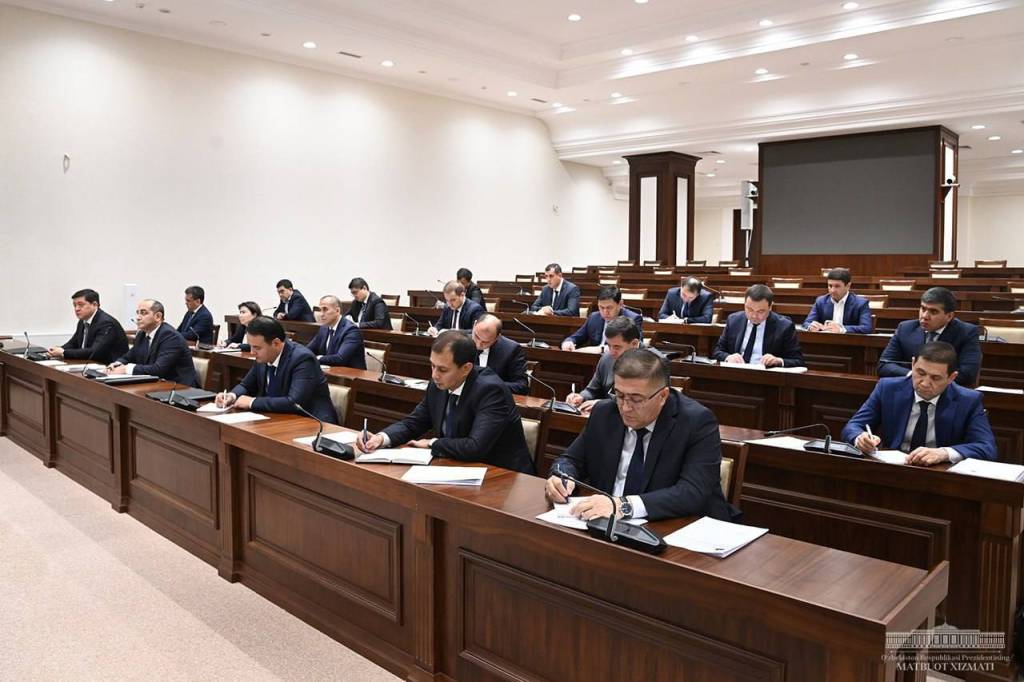
In addition, energy costs can be reduced twofold by using materials such as sun-reflecting glass and a vermiculite mixture. Fiberboard panels on building facades also give good results. The country has enough cement and enriched sand for its production.
Responsible persons were given instructions on the production of such essential building materials. In particular, it was noted that investment projects worth $20 million will be implemented at the Quartz enterprise in Kuvasay and the glass factory in Jizzakh – for $10 million.
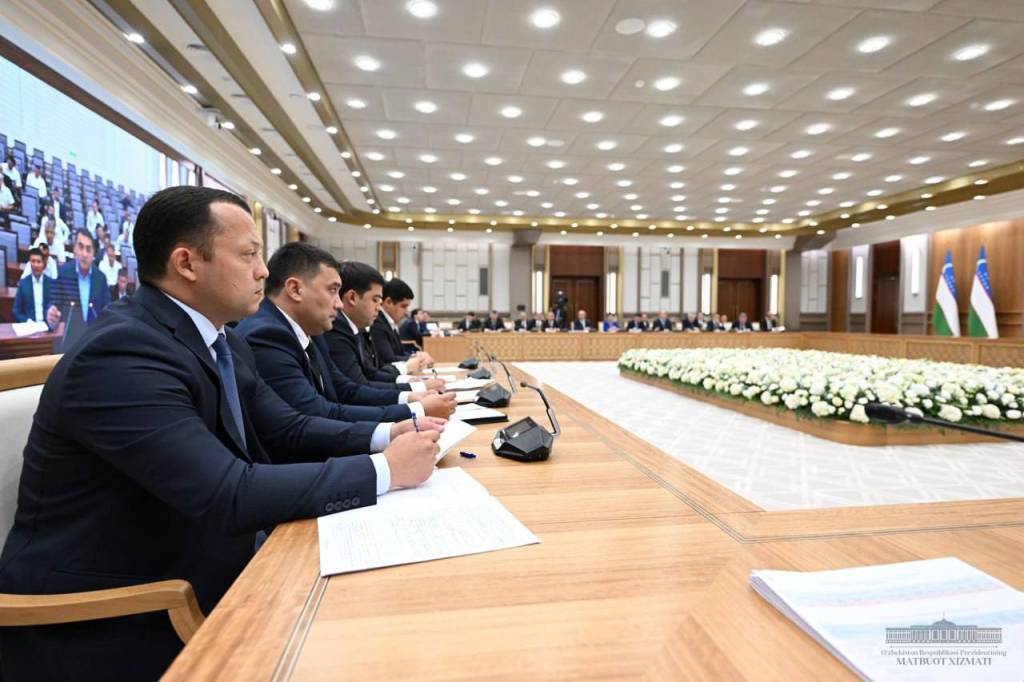
In general, 350 new projects worth $3.5 billion are planned to be implemented by entrepreneurs. During their construction and operation, it is envisaged that 50 thousand citizens from low-income families will be employed.
Reducing energy costs in the manufacture of building materials is very important. This affects their cost price and market attractiveness.
Although industry production has increased by 1.2 times over the past two years due to targeted measures, energy consumption by enterprises was reduced by 1.3 times and energy intensity by 1.6 times. For example, at Kyzylkumcement, heat exchange equipment was reconstructed, saving 37 million kilowatt-hours of electricity annually.
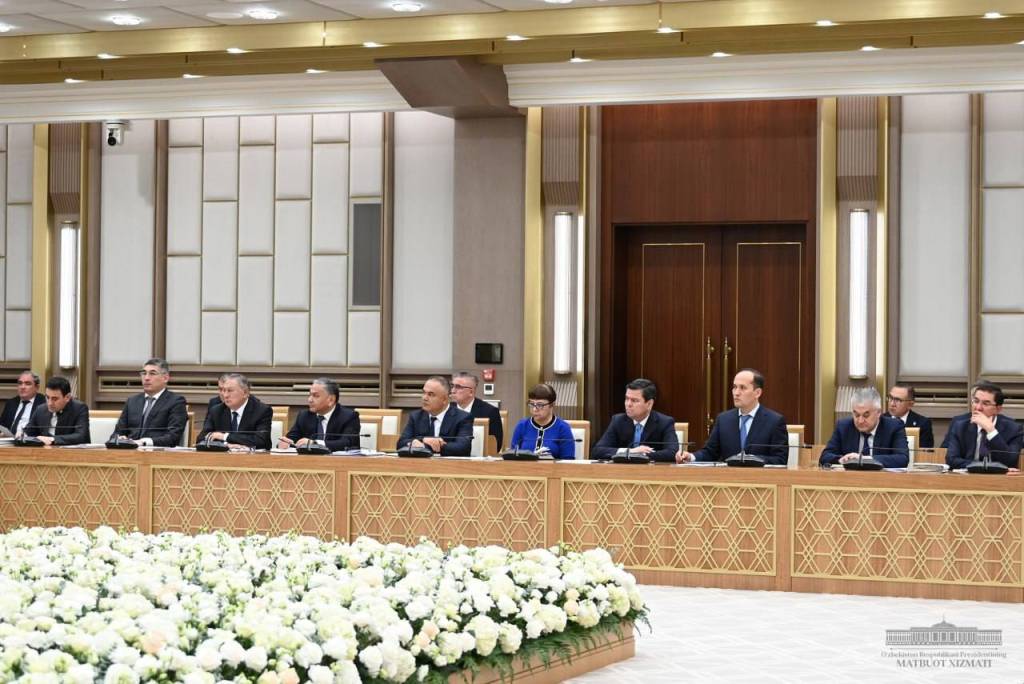
Today, leading foreign enterprises are actively using the technology of generating electricity by reusing thermal energy. Based on the completion of an energy audit at 34 enterprises with high energy consumption, it is possible to save 300 million kilowatt-hours of electricity annually.
Out of 170 types of building materials produced in Uzbekistan, domestic demand is covered for 97 types. However, due to the lack of market research, there is oversaturation.
Therefore, a list of building materials with which the market is saturated will now be published. Based on internal and external needs, proposals for new products will be prepared and posted on the open portal. The projects will be considered at the scientific and technical council of the Uzqurilishmateriallari Association. Under the Association, a testing laboratory based on Korean experience will be created.
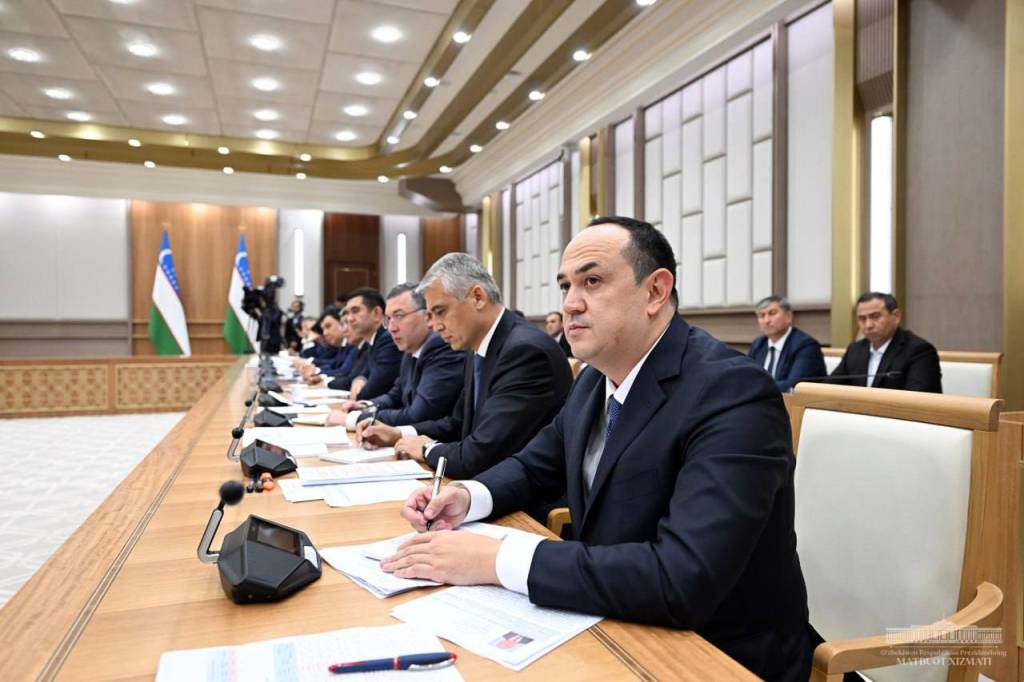
Instructions were given on putting up the identified sand and gravel areas for auction, strengthening control over the illegal use of non-metallic deposits.
Current issues in construction were also discussed at the meeting.
Over the past seven years, construction worth almost $100 billion has been carried out in the country. The volume of work in this area is growing by an average of 7-8 percent per year.
The construction industry worldwide is developing every day, and new technologies and innovations are being implemented. However, outdated standards and approaches are still preserved in the country.
The need for regularly updating urban planning norms and regulations to keep up with modern methods was emphasized.
As is known, masterplans for regions are being developed locally to develop tourism, trade, and services. For example, in Bukhara and Navoi regions, the work has accelerated. The first land plots have been sold to entrepreneurs. However, in some regions, this process is still slow.
The regional hokims have been instructed to accelerate the implementation of 48 masterplans for the integrated development and urbanization of territories, 20 for the creation of tourist zones, and 68 for the expansion of roadside trade and services.
Particular attention is paid to the issue of construction quality. Some ill-conceived projects cause discontent.
It has been established that daily monitoring will be carried out for each building under construction. For this purpose, a headquarters will be created in the territorial departments of the Inspectorate for Control in the Sphere of Construction and Housing and Public Utilities. Video cameras will be installed on each building being built at the state’s expense, and the information from them will be sent to the inspection online.
Also, control over illegal construction by mahalla chairpersons and the public will be strengthened. Data with a QR code will be placed in front of each building under construction. The construction will be considered illegal without a passport with such a code.
Responsible persons have been instructed to create a new digitalized system for monitoring construction and improving the activities of the relevant inspection.
Also, many complaints have been raised about the activities of urban planning councils in each region. Consideration and approval of projects submitted to the council are delayed for months.
In this regard, it was noted that the process associated with these councils will be fully digitalized. All projects will be submitted electronically through the “Shaffof Qurilish” platform. Council members will electronically approve the project on this platform. The project review period will not exceed 15 days.
There have been cases of buyers being deceived during housing construction. Therefore, a guaranteed escrow account system for purchasing housing will be introduced.
Thus, developers will enter into agreements with banks to organize the sale of the houses they are building. People wishing to purchase an apartment will not pay the developer but directly to the bank. The banks will provide the collected funds to the developer as a resource. Banks will act as a “bridge” between the developer and the buyer, guaranteeing timely and high-quality housing construction and its transfer to the owner.
Responsible persons have been instructed to implement these new procedures gradually.
The quality of construction also depends on the knowledge and skills of employees. Therefore, a system for assessing the qualifications of construction workers will now be introduced.
Specific requirements for the level of qualification will be established. To obtain the category, applicants will undergo training in professional education institutions. Specialists who study independently or as apprentices and pass the qualification exam will receive a certificate without additional training.
The same system will be applied to design organizations.
The Head of state heard proposals and opinions of entrepreneurs on the issues discussed at the meeting. Responsible persons were given instructions on numerous proposals, such as processing local raw materials, manufacturing products in demand on the market, creating a healthy competitive environment by introducing a mandatory certification system and hiring additional labor for construction in a simplified manner.
UzA








